Nick Doody and Matt Kirshen interview
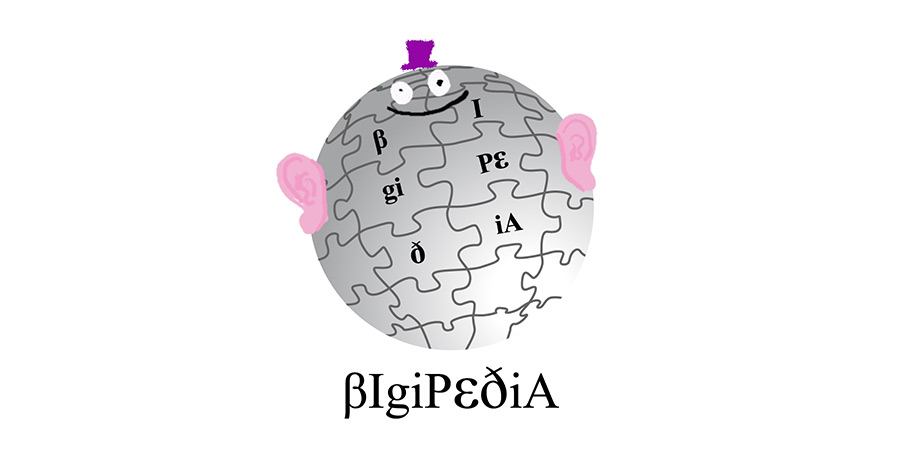
Before the start of the first series of Bigipedia, we talked to Nick Doody and Matt Kirshen about the show, plus stand-up, Twitter, dwarfism, wine-based product sponsorship, and more. Here is the chat we had...
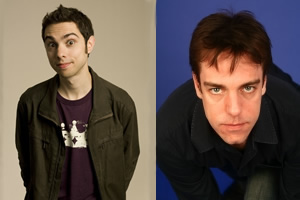
Hi guys. Thanks very much for talking to us. Bigipedia is not like anything we've heard before. Perhaps a good way to start off would be to ask you to describe the show?
Nick Doody (photo right): It's vaguely based on Wikipedia, with bits of Google, Microsoft and the rest of the web thrown in. Overall, the show is an audio version of surfing the web - in particular, surfing this site, Bigipedia, which claims to be a font of all knowledge but describes a kind of comedically parallel universe. Plus, it's often wildly inaccurate. There are different levels to the show: the articles themselves, then discussion pages of the characters who contribute to Bigipedia, and finally the system itself, which is vulnerable to all the problems of the real Internet (pop-ups, buffering, suddenly breaking down, trying to get your personal details, etc.)
Matt Kirshen (photo left): We've essentially taken the computing world as it is, and tweaked it a bit - made the articles odder and the system more explicitly malicious. Once you get to the articles themselves, it gets closer to a regular sketch show, but between us and David Tyler [the producer] we had to come up with a language to embed it in.
Cheers for that. Before we talk a bit more about Bigipedia, perhaps we could go back a bit and ask how you first met?
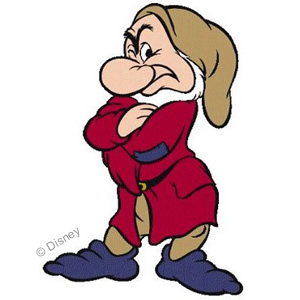
Matt: I'm not sure when we first came across each other - on the circuit you sort of bump into everyone eventually. The first time I explicitly got in touch with Nick was to tell him there was a photo of him on a comedy club's website that made him look like an angry dwarf. He is the only one who can't see it. Judge for yourself (third picture on the right)
Nick: I resent the idea that, seen as a dwarf, I come across as angry.
Matt: It's more your dwarf name. The Disney ones are copyrighted.
Nick: Right, so I look like Angry, the Dwarf? Any more of that and you're getting bitten on the knees, Mister. (Takes off pointed red cap, exasperatedly). Anyway, I think we met a few times at late-night drinking holes frequented by comics who don't like going home. Then the first gig we did together was on the Isle of Wight.
Matt: Which is a long journey there and back but we found we clicked. About a year later, there was a room going in the house Nick shared with fellow comics Carey Marx and Phil Nichol. I needed a place and got in touch. After a while of living together, you find your senses of humour start to merge. At one point we co-hosted a new material night and found ourselves naturally improvising together.
Nick: Yeah, topping each others' punchlines with extra tags. I think each joke had about six punchlines that night.
As you say, you both come from a stand-up background. Have you always wanted to be comedians?
Nick: Actually, neither of my parents was ever a stand-up. It's a weird phrase, "come from a stand-up background", as it seems to suggest that's not what I do any more. I'd still consider myself primarily a stand-up comic. Well, primarily a carbon-based life form, then a mammal, but in terms of what I do, a stand-up comic. To answer the question, it's what I wanted to do since about my second year at University - and in fact the only thing I've ever really wanted as a career. There was a moment late one night when I was writing an essay and occasionally turning to jot down an idea for a joke in my notebook when I realised, "I'm not a language student who does comedy; I'm a stand-up comic who happens to be studying languages at the moment."
Matt: I nearly started stand-up before uni - I'd got as far as dragging friends to open mic clubs with the excuse of, "Hey - let's see some comedy tonight. Oh! This one is cheaper than the others." Whereas in reality it was me scoping out what my first gig would be like - I knew if I did start it would be somewhere like that, and not, say, The Comedy Store. But the kick I needed to start came in my third year as a student. I'd already been writing for, and then editing, a student paper - a comedy paper - when one of the other writers, James, said he was going to do a stand-up gig. To which my response was, "So am I..."
Nick: Oddly, my first gig in London was the Comedy Store. I'd never lived in London and didn't know any other clubs, so I just thought I'd book an open spot at the only comedy club I'd heard of.
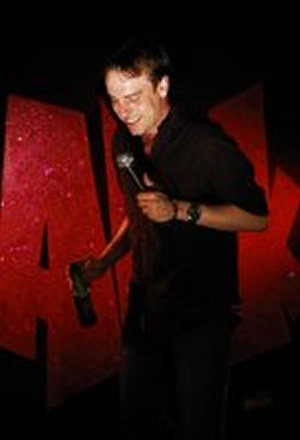
Well, congratulations to you both on your success so far in what is a notoriously tough industry. Nick, your stand-up career got off to a pretty amazing start - Bill Hicks asked you to support him on tour? What was that like?
Nick: It wasn't for the whole tour, just for one show. It was not the easiest gig for someone who'd only done about a dozen stand-up sets at that point. Bill asked me to do it because I interviewed him for a student paper and we got on really well, but I think he overestimated my experience. Also, the whole audience thought I was Bill Hicks until I opened my mouth. There was no support act advertised except a folk band called Balloon, so when I walked out as a white male with dark hair and a black shirt, they went wild. Then I said hello, and they realised. There's nothing like profoundly disappointing 1500 people all at once.
Ha ha. Oh dear. Well, since then you've taken a number of shows to Edinburgh, all of which have picked up some great reviews. Some of your routines - e.g. stuff on Islam's Muhammad etc - are fairly daring. Do you ever worry you might offend the audience, or get yourself in hot water?
Nick: I don't worry I might offend them; there's always someone who'll be offended by something. If no one at all is offended you're probably not saying anything of much interest. I've never done a routine about Muhammad, though - unless you mean Muhammad the teddy bear. I like to push the envelope occasionally of what you can get away with, but in general it's just an exaggerated way of putting across a point of view. Plus it's fun if people agree with you to see how far they'll go: "Do you agree with me this far? How about this far?". There was a line I did by accident in the Middle East that nearly got me in real trouble. I didn't even mean to do it - it just slipped out. That was a worrying few hours!
You're also a regular contributor to The Now Show Nick. How is the writing process for that show organised?
Nick: There's a writers' meeting on the Tuesday where we decide what the main topics are going to be, then everyone goes off and writes a load of lines or sketches on those, and you send them in later that day or on the Wednesday. Sometimes they'll ask you to concentrate on a particular area, but in general you just supply lines, then Steve Punt, Hugh Dennis and the producer - currently the brilliant Ed Morrish, who is extremely funny in his own right - pick what they like. You never know what'll make it into the final version, although if you came out with a line in the meeting that got a laugh, that's often a good sign.
Great stuff. Matt, your stand-up career got a massive boost in 2007 when you made it to the finals of Last Comic Standing - the American TV talent show watched by millions. Did you ever expect to get so far?
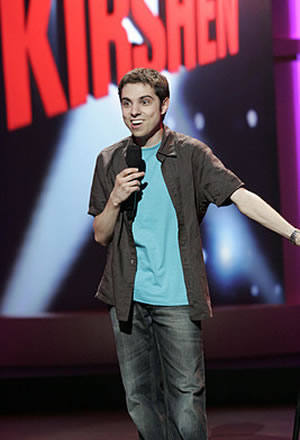
Matt: Not at all. The semi-finals were about a month and a half before the finals, and I asked them to fly me back home a week later than they were going to because I doubted I'd be returning to the US and I wanted to get a proper trip out of it. Then I found out I'd got to the final ten. Watching it back you can see me do a genuine double-take. All in all, I spent nearly half that year in The States.
So no - I didn't expect to get on. At the time I had 5-6 years of stand-up under my belt, and some of the other semi-finalists had been going a couple of decades. Two of them had had their own sitcom. It was very strange. It's still very strange looking back on it now. More strange really. When the show's in production, you spend most of your time being shunted from place to place, put in front of a camera and told to talk. You don't really appreciate it until after the event.
As a result of the show, you've got quite a big profile over in the States now. Have you got any plans to return to America?
Matt: Yes. I'm still going back and forward from there a fair bit. I'm back there next after the Edinburgh Fest.
You've previously joked that you've got both attention deficit disorder and obsessive compulsive disorder...?
Matt: That was just one of those late night realisations. I was just musing on the fact that I have them both, but only mildly, and it's probably because they cancel each other out. I start doing something compulsive and just... drift off. The net effect's basically faffing. I didn't think talking about it on stage would work, so I sat on the idea for a couple of months, but on a quiet Sunday night at the Edinburgh Stand I thought I'd drop it in the middle of my set, and it got one of the biggest laughs of the night. It's one of those bits that I particularly like because with a big enough crowd you always see one or two people nudging the person they're with. It's always pleasing to hit on something that you know people haven't hit on before, but really explains someone's behaviour.
Nick: You don't have to work with it. Those people aren't nudging the people they're with; they're hitting them. Matt's ability to drift off is amazing. You'll be typing away, thinking you're both on a roll, then suddenly realise Matt has started to climb absent-mindedly out of the window, brushing his teeth.
Matt: (plays kazoo)
So, you're now working together on Bigipedia. It's a pretty off-the-wall idea - how did the project come about?
Matt: (puts down kazoo). Nick had been working with David Tyler on Armando Iannucci's Charm Offensive, and he did that thing that good producers tend to do with people they like, and invited him in for one of those "Do you have any ideas for a show" type meetings. That was the idea he liked most. I think David already thought of the two of us as a writing team - we'd done a couple of things together with him before. Nick and David wrote the proposal. Radio 4 liked it enough to put up some money for a pilot, and that's when I came in.
Nick: I think I came up with the original concept in our kitchen while we were still living together. Quite often we'd bat around ideas and material at night, and I kind of pitched this one to Matt before I pitched it to David in the meeting. David instantly saw how it could work. In fact, I don't think it was until David explained it in the first couple of writers' meetings that Matt properly grasped the idea in a concrete way - I'd been sort of vague about these different levels of interaction with the show and David explained it properly. Is that fair to say?
Matt: Yup. I couldn't really get how it would sound - how we'd do the links etc. But David had such a clear idea in his mind and, when we all met up, he essentially re-explained it.

The show is essentially hundreds of mini sketches sewn together. It must have taken a while to write and edit?
Matt: Yes. It took us ages, and we threw everything we had at it. As did Sarah Morgan and Carey Marx, who joined us for the series. And some of the cast wrote bits too - notably Margaret Cabourn-Smith and Neil Edmond. Some of the ideas were things we'd had knocking about for years, and a load more came from the writing meetings. We knew the show is high concept and we could do clever things with it, but more than that, I think Nick's and my strength is in gag writing. We wanted a show with as many properly funny jokes as we could. David was an excellent producer to work with for that too - on the editing days we spent hours poring over every line to see if it's really necessary and/or if we could make it funnier. It was draining, but at the same time, easily the most enjoyable and rewarding writing work I've ever done.
Nick: I'm glad you've realised how writing-heavy it is. Compared to most radio shows, it's incredibly dense, material-wise, and very fast-moving. I think Matt and I would like some of it to be even faster, but sometimes people who've heard the pilot say things like, "It's almost too much." I really like that. I like that it's something you kind of need to hear twice to catch everything. When we got the series, I honestly didn't know where we'd come up with the material of the quality we were determined to keep up. That's when we drafted in Sarah and Carey, who both produced some fantastic stuff, and I think added to the 'voice' of the show.
Matt: And the cast then really added to that again. It's my first real experience of writing a thing that I had a genuine investment in, and then handing it to actors to perform. Occasionally it's hard when the thing that comes out isn't how you imagined it, but most of the time, the cast either hit it exactly as I wanted, or, even more pleasingly, found a way of delivering it that was completely different, but took the joke into a whole other dimension. Every one of the performers at one time or another did something that blew me away.
Nick: I have to agree with that. As Matt says, at first there's an element of the thing in your head being done by other people that's hard to get over, but everyone was extraordinary. There's at least one moment when everyone involved raised the bar in ways we hadn't imagined.
Obviously, Bigipedia contains a fair few internet-based gags. So, we guess we're right in assuming you're both regular users of the web?
Nick: Well, everyone kept mentioning it in connection with the show, so by the time it got to Episode 4, I thought, "I'd better check out this internet thing to see what all the fuss is about." Seriously, of course we both use the net lots. Although I mainly use it to play chess. Once in a while, a sketch would be inspired by randomly flicking through pages on Wikipedia.
Matt: Yup. There's a 'Bee Whisperer' in Episode 3 that came from clicking the 'random article' link on Wikipedia. I don't remember what the page we got was, but about 3 logical leaps later we landed on that idea.
So which of you is the more geeky one, would you say?
Matt: Well Nick spends most of his time playing internet chess, whereas I while away the days playing football on my surfboard while cruising for chicks.
Nick: That's half-true. Actually, I only spend most of my awake time playing Internet chess. Also, trying out moves. Sure, a martial arts technique might work on the street, but what if you're attacked online? I'm ready.
Matt, you've been on Twitter for ages (@MattKirshen) and took part in the first Twitter comedy gig. That was a bit hectic wasn't it?
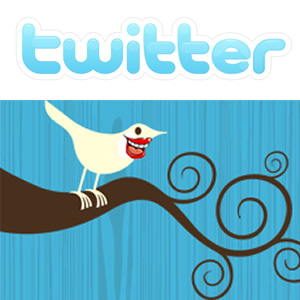
Matt: Well I managed to misjudge that one a fair bit. All the other acts treated it as a gig in itself and took the rest of the night off, but I tried to do it from the back of a gig I was already booked for. On top of that, the software I was trying to use crashed, leaving me with my phone and a shaky internet connection. At which point I thought: Why not try and tell a long story, which, if I don't manage to finish in time, will just look rubbish? It wasn't my finest hour.
I do like Twitter in general, though. I tend to use it for any daft one-liners I think of. Particularly ones that don't fit my normal stand-up voice.
Meanwhile, Nick, you only joined up to Twitter last month? (@NickDoody)
Nick: I was the one onstage while Matt was doing the Twitter gig. When he left the room because of connection problems, half the audience thought I'd really offended a man who for some reason was carrying a laptop.
I'm quite enjoying Twitter so far, although I can't read it from my phone, which is probably a good thing. I can see it being a dangerous addiction.
Yeah, probably a good thing. It is rather addictive! So, here's the ultimate test of geekiness guys - have either of you actually ever edited an article on Wikipedia?
Nick: We tried it during one of the early writers' meetings. David changed 'very' to 'very very' in a sentence in my Wikipedia page, just as an experiment. It was corrected within ten seconds by some guy in New York. Incredible.
My page has been edited a lot by my youngest brother. For a while he had fun adding details about my time as a mercenary in Indochina, my collection of ladies' hats and my inexplicable fear of spoons, but then I mentioned it in an interview, it was reprinted in Chortle and all the pages were corrected. Which has led to a lot of my mercenary work drying up.
Matt: The 'very very' thing was odd - that was when we realised that people just sit on Wikipedia all day monitoring changes to pages. The guy who fixed it had no vested interest in that article itself. He just loved making the site as accurate as possible.
My page at one point featured my younger sisters' names and ages, which I found genuinely creepy. They brought it up at a family dinner. They said, "Have you seen your Wikipedia page?" and I said, "Yes - it's got stuff about you on there. That's a bit odd." And they said, "Yes... We did that." They'd spent a good hour working out how to edit my page, just to give themselves a mention.
Nick, didn't your brother actually go to the effort of changing your IMDb page first, and then citing it as a reference?
Nick: Yes. He's nothing if not thorough. Actually, I think he did the IMDb page first then, when that went through with no problem and he was rubbing his evil hands with glee, he edited the Wiki page and realised he could cite his own earlier vandalism of different websites as a source. It stayed up for ages. And to be fair, the references were all sound, as far as they went. That's the trouble with having your sources all be online.
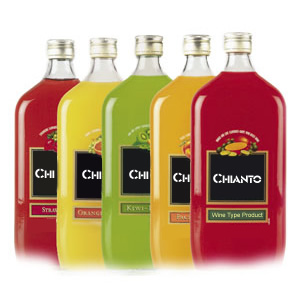
Unlike Wikipedia, Bigipedia is sponsored by a sinister fictional drink called Chianto...
Matt: Long before Bigipedia was an idea, I did a charity gig and was given a bottle of wine as a thank you, but the wine had a name that sounded like a wine type, but a bit off. It wasn't Chianto as we couldn't use an existing brand in our show - but it was that kind of thing. Like a market stall knock-off wine type. That evening, as we drank it (straight out of the bottle, as the makers intended) we started coming up with spoof slogans for this horrific drink. After a few, someone suggested writing them down, and within about an hour we'd filled 6 pages of my notebook with lines like, "The drink you can't spike" and "Because Pandora also had a bottle."
Incidentally, I thought to my horror that I'd left that notebook in a New York hotel, but it magically rematerialised just before the recording. There's quite a few ideas in the show that were earlier running jokes between Nick and me that we put into the show. The sinister nature of Teddy Bears' Picnic was another, which became a sketch in Episode 1.
Nick: Yes, Chianto became a long-running in-joke. I have no idea how many tag-lines we came up with for it. Probably hundreds. Some were a bit oblique - "Daddy's other voice" or "the other big C". I don't even know why we were writing them down. I think we had the idea that at some point we'd write a sitcom (we had an idea for one) and a minor running idea would be that you kept seeing this horrendous beverage advertised in the background.
Interesting stuff. Before we head off for a nice refreshing bottle of Chianto, just two final questions if that's ok. Firstly, how are your Edinburgh shows shaping up this year?
Nick: It's so hard to tell. I think mine's coming along well. I had some fantastic previews that made me think, "Wow - this show's amazing!" Then you get the ones where some of it just doesn't work, that make you realise there's still work to do. My show this year has some very personal stuff in it and, in a way, it's the most personally important show I've done, but there's also an overriding concept and kind of a twist in it. I don't want to give it away but, aside from the personal stuff, it's about my ability to see both sides to every issue.
The show develops so fast once you start previewing it. I saw one of Matt' s previews tonight and it had really evolved from the version I saw a few weeks ago. It's fascinating. I don't think anything but Edinburgh makes you work this hard at stand-up. Maybe TV and radio spots, because they're just a few minutes and they'll be out there forever. It's either the very short sets or the hour-long shows that make you really work away at this like the art it can be.
Matt: I think it's the sheer terror of the festival that spurs you on. But it's great to have that to make you do it. I now have over an hour of new stand-up that I didn't have this time last year, which is a genuine creative thrill. I'm now very excited about the festival. I'm also very excited about Nick's show. Possibly more than I am about mine. Is that wrong?
We've heard great comments from audiences at both your previews, so it sounds like you'll both be making a lot of people laugh this August. Just one final question to slot in then, something we try and ask everyone: Excluding the stuff you've been involved in, what are your favourite comedies?
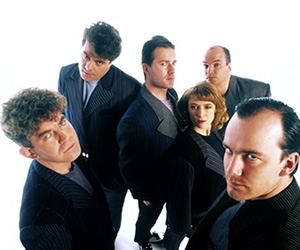
Nick: Just to reel off a list... The Day Today, Brass Eye, The Simpsons, Futurama, Family Guy, Arrested Development, 30 Rock - those are all fantastic. I enjoy The Daily Show when I see it. I'm aware there's a lot of American stuff in my favourites. I don't have a TV, so probably miss a lot of stuff. I've really enjoyed lots of what Mitchell and Webb have done and in general find David Mitchell brilliantly funny in almost everything he's done. When I was a younger I loved Fry and Laurie, and Mitchell and Webb have reminded me of them a bit recently - in a good way. I used to love Radio 4 comedies and, even though they're slightly before my time, in my teens I had cassettes full of Radio Active, Saturday Night Fry, things like that. I used to love Absolutely on TV (pictured). My sister and I watched it crying with laughter. Later in life, turns out David Tyler produced it. I am very happy right now.
Matt: Yup – at the end of recording Episode 3, Gordon Kennedy, who was recording something in the next studio, burst into our room, shouted, "David!" hugged him and then spent 10 minutes reminiscing about their Absolutely days while we tried not to look like star-struck comedy nerds.
Nick: I didn't - I had to go to Indochina for a thing.
Matt: As for my favourites, I can second most of Nick's list, and doubly second Arrested Development and just about everything that Armando Iannucci has been involved in. Plus, for stand-ups, Mitch Hedberg's mind was remarkable. I don't really do one-liners, but if I did, I wish they could be as good as his. That and Jack Handey: hilarious ideas there. And I know it's not exactly fashionable, but Jasper Carrott was the first person who was essentially doing stand-up that I remember laughing at on TV. And I remember laughing at it a lot. If anyone's to blame for getting me into comedy, it's probably him.
Nick: If we're counting stand-ups I have to add Emo Phillips, Stephen Wright, then later Bill Hicks, Richard Pryor, George Carlin, Woody Allen (later in my awareness of them; not chronologically). The first time I did stand-up, aged 19, my main influences were probably Stephen Fry and Arnold Brown. That changed a lot, obviously. These days when people ask me about the comics I hold in the greatest esteem, they're all people I know personally, including some of my closest friends. As I say, I am very happy.
Cheers guys. Thanks so much for your time, and best of luck with the show!
For info about Matt visit www.mattkirshen.com. For more info about Nick visit myspace.com/nick_doody

